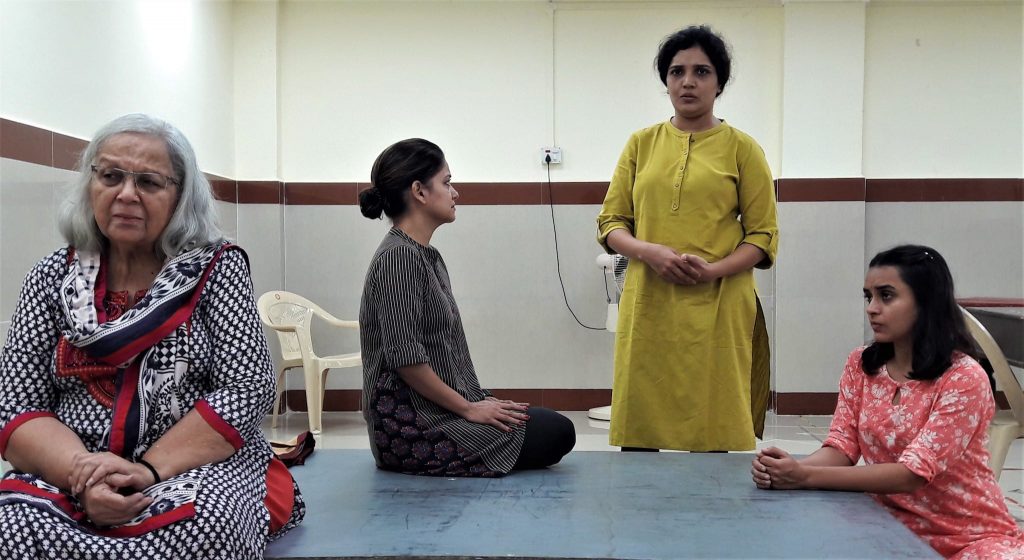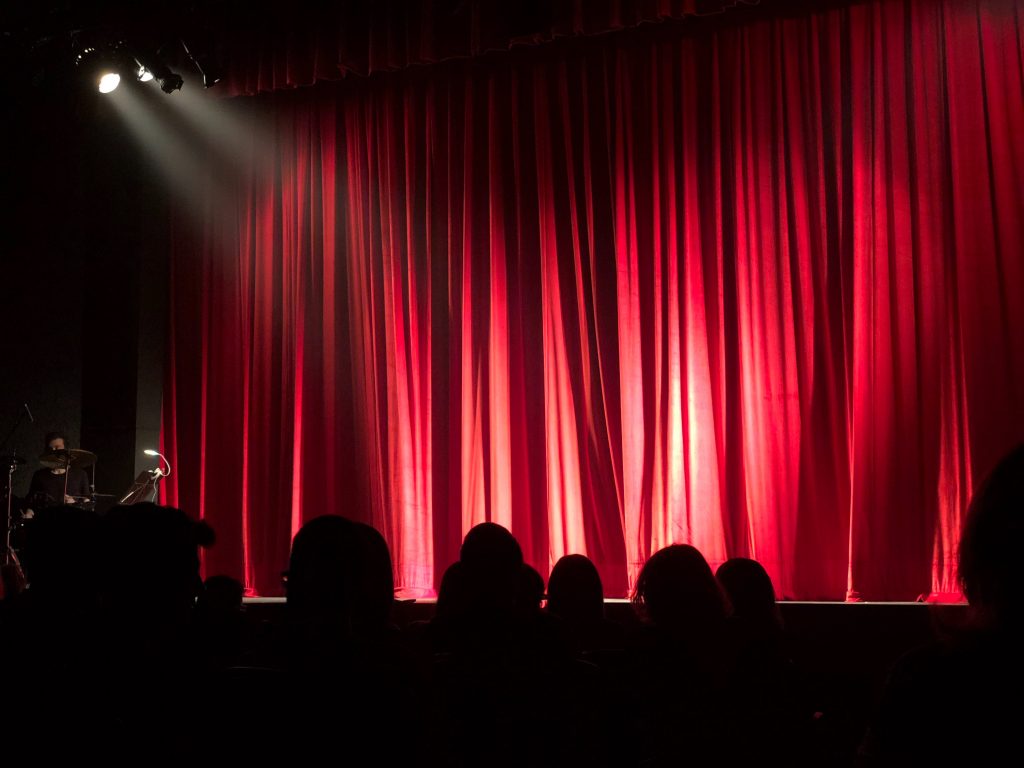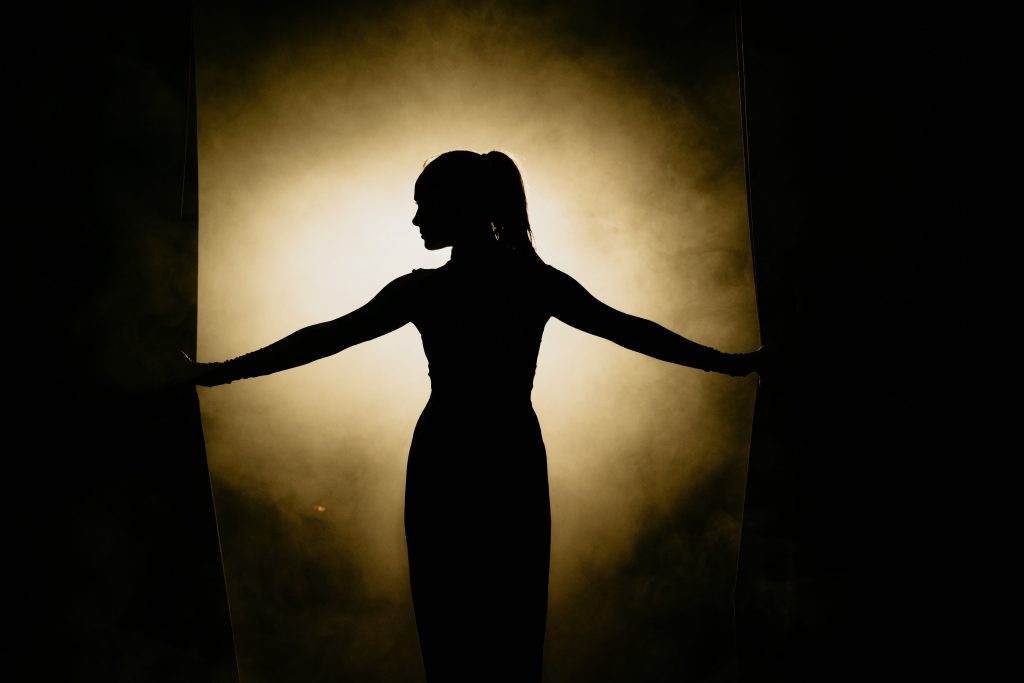Of the many things I prepared myself for, when I was leaving Mumbai and precisely Seven Bungalows, Andheri, not having access to theatre was not one of them. I had forgotten how close I was to the Prithvi theatre and even St. Andrew’s auditorium and Deenanath Mangeshkar in Vile Parle, for being able to watch plays and wander in the lovely world of theatre regularly and frequently.
Cut to namma ooru Bengaluru. I tried going to Ranga Shankara, which was far from home, even by my Bombay-capacity-of-long-travel, to attend a festival, a book launch and then, the pandemic solved the problem of not being able to make it. There wasn’t anywhere to go anymore. That was the end of theatre for me. Later, if English theatre was hard to access, Marathi was much harder. The shows were very few, timings rarely matched and venues were not close to home.
But then this February came Charchaughi. A play that was etched in my childhood memory through a two-inch black and white newspaper advertisement with Vandana Gupte and Deepa Shriram and Pratiksha Lonkar – oozing so much power that I didn’t understand at all. Two decades later, the same play is being performed by Rohini Hattangadi, Kadambari Kadam, Parna Pethe and Mukta Barve. And it was coming to Bengaluru.

Charchaughi, a term that loosely translates as “like everyone else”, but in this play, it’s a delicious irony. The story is of a mother and her three daughters, who make tough choices, pay the price for it at every juncture in life and despite the turbulence, remain fiercely honest to themselves and their choices.
Mother, who has three daughters with an already married man, brings them up to become confident, educated and independent women charting their own journeys. Choosing to excel, choosing not to excel, choosing to marry, divorce, propose live-in with two partners and fight an unresolved case in the court for husband to take equal responsibility for a child. Yes, a lot is going on here. But it is impossible to not empathise with the characters and more importantly, it’s impossible to not think about things in our society.
The play written by Prashant Dalvi, and directed by Chandrakant Kulkarni, took the theatre world by storm in 1991 and is considered to be one of the most memorable plays to be written, directed and performed. Chandrakant Kulkarni revived it with a new cast and has been having a great run so far.

The news about just four shows over a weekend was posted in our apartment’s Marathi group. I wasn’t sure about coordinating and planning with members of the group to watch the play. But it was the same force that made me watch a play by myself for the first time – the last show of Surya Pahilela Manus by Dr. Shriram Lagoo, where he plays Socrates, more than 20 years ago.
Something tells you right? Bro, you can’t miss this, no matter what. So, I booked a solo ticket, one of those last-minute seats, and waited eagerly for the date. A friend nudged to find out who else from the group was going and voila!
Incidentally, we were four women, all very different, who went for the houseful show of Char Chaughi at New Horizon Engineering College Auditorium. One of them was watching a play after many years, another was a regular, I was somewhere in between, the fourth one was the youngest among us, simply eager to soak in Marathi culture.
During the course of the three-act play, as we met to share notes at intervals, we saw each other in tears, gulping sobs, feeling anguished and even laughing over some witty moments. It was quite an emotional ride for a first meeting of sorts. As we bonded over the mandatory vada-pao and chai after a Marathi play, we promised to do this more often. We connected at various levels – being Marathi, women and also theatre-lovers.
Our WhatsApp group – the new benchmark of all great friendships? – is titled Charchaughi. We share information about new plays, movies and musical programmes, which are organised in abundance in Bengaluru by Marathi Mitra Mandal and other fora. We discuss recipes and share articles sometimes. A coffee date has been successfully accomplished too, which is a feat given everyone has a job and a household to take care of.
I don’t know if I can articulate about ‘the purpose’ of theatre and experiencing it as an audience. I would go to this pearl of wisdom from Oscar Wilde who says, “I regard the theatre as the greatest of all art forms, the most immediate way in which a human being can share with another the sense of what it is to be a human being.”
The experience made friends out of strangers in one go – it gave us an intense, intimate and deep experience of human emotions as we immersed ourselves in the powerful performances. We were reminded how tremendously brave and progressive Marathi mainstream theatre has been. But it was more than that.
On our way back we spoke about the lives of women under the constant pressure of patriarchy and how difficult it was to navigate it. We joked about how the world perceives women drivers as one of our friends drove effortlessly, we talked about how we navigate our relationships, inevitable sacrifices that are part of the deal and so on.
At one moment, Rohini Hattangadi, the mother tells Mukta Barve, the elder daughter that the change that she is demanding in the mindset, will not happen for the next 50 years. This is about Mukta fighting in court to ensure her estranged husband shares equal responsibility for their toddler daughter. We calculated that it has only been 30 years since the play was written and we should expect no change for another 20 years. I wondered if things will change for our children.
The lives of the four women on stage were way more radical, experimental and brave than our lives. But that’s the beauty of a good play, isn’t it? We felt connected to each of them on the stage and with each other at the same time.
It perhaps needed a play like Charchaughi to shake me out of my “maybe next time” mode and get proactive, make the adjustments on time and let theatre make magic in my life again.
On July 15th I am watching Piya Behroopiya, by Atul Kumar. Can’t wait.








